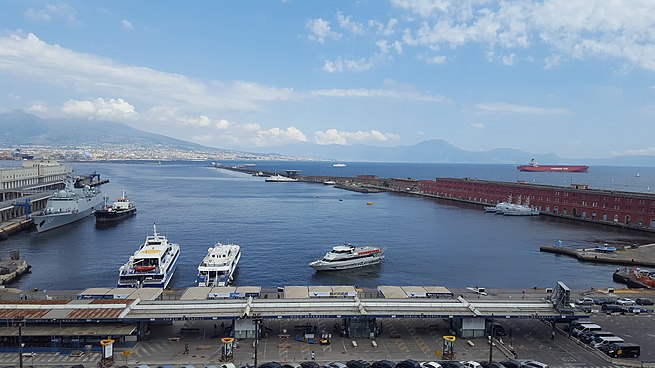
Main Difference
The main difference between Day and Night is that the Day is a unit of time lasting 24 hours and Night is a part of the day when the Sun is not aloft.
-
Day
A day, a unit of time, is approximately the period of time during which the Earth completes one rotation with respect to the Sun (solar day). In 1960, the second was redefined in terms of the orbital motion of the Earth in year 1900, and was designated the SI base unit of time. The unit of measurement “day”, was redefined as 86 400 SI seconds and symbolized d. In 1967, the second and so the day were redefined by atomic electron transition. A civil day is usually 86 400 seconds, plus or minus a possible leap second in Coordinated Universal Time (UTC), and occasionally plus or minus an hour in those locations that change from or to daylight saving time.
Day can be defined as each of the twenty-four-hour periods, reckoned from one midnight to the next, into which a week, month, or year is divided, and corresponding to a rotation of the earth on its axis. However its use depends on its context, for example when people say ‘day and night’, ‘day’ will have a different meaning. It will mean the interval of light between two successive nights; the time between sunrise and sunset. People tend to sleep during the night and are awake at a day, in this instance ‘day’ will mean time of light between one night and the next.However, in order to be clear when using ‘day’ in that sense, “daytime” should be used distinguish it from “day” referring to a 24-hour period ; this is since daytime typically always means ‘the time of the day between sunrise and sunset. The word day may also refer to a day of the week or to a calendar date, as in answer to the question, “On which day?” The life patterns (circadian rhythms) of humans and many other species are related to Earth’s solar day and the day-night cycle.
-
Night
Night or nighttime (sp. night-time or night time) is the period of time between sunset and sunrise, when the Sun is below the horizon. Complete darkness or astronomical night is the period between astronomical dusk and astronomical dawn when the Sun is between 18 and 90 degrees below the horizon and does not illuminate the sky. As seen from latitudes between 48.5° and 66.5° north or south (of the Equator), complete darkness does not occur around the summer solstice because although the Sun sets, it is never more than 18° below the horizon at lower culmination.
The opposite of night is day (or “daytime”, to distinguish it from “day” referring to a 24-hour period). The start and end points of time for a night vary, based on factors such as season, latitude, longitude, and time zone. Twilight is the period of night after sunset or before sunrise when the Sun still illuminates the sky when it is below the horizon. At any given time, one side of Earth is bathed in sunlight (the daytime) while the other side is in the shadow caused by Earth blocking the sunlight. The central part of the shadow is called the umbra.
Natural illumination at night is still provided by a combination of moonlight, planetary light, starlight, zodiacal light, gegenschein, and airglow. In some circumstances, aurorae, lightning, and bioluminescence can provide some illumination. The glow provided by artificial lighting is sometimes referred to as light pollution because it can interfere with observational astronomy and ecosystems.
-
Day (noun)
Any period of 24 hours.
“I’ve been here for two days and a bit.”
-
Day (noun)
A period from midnight to the following midnight.
“The day begins at midnight.”
-
Day (noun)
Rotational period of a planet (especially Earth).
“A day on Mars is slightly over 24 hours.”
-
Day (noun)
The part of a day period which one spends at one’s job, school, etc.
“I worked two days last week.”
-
Day (noun)
Part of a day period between sunrise and sunset where one enjoys daylight; daytime.
“day and night;”
“I work at night and sleep during the day.”
“night”
-
Day (noun)
A specified time or period; time, considered with reference to the existence or prominence of a person or thing; age; time.
“Every dog has its day.”
-
Day (noun)
A period of contention of a day or less.
“The day belonged to the Allies.”
-
Day (noun)
A 24-hour period beginning at 6am or sunrise.
“Your 8am forecast: The high for the day will be 30 and the low, before dawn, will be 10.”
-
Day (verb)
To spend a day (in a place).
-
Night (noun)
The period between sunset and sunrise, when a location faces far away from the sun, thus when the sky is dark.
“How do you sleep at night when you attack your kids like that!?”
-
Night (noun)
An evening or night spent at a particular activity.
“a night on the town”
-
Night (noun)
A night (and part of the days before and after it) spent in a hotel or other accommodation.
“We stayed at the Hilton for five nights.”
-
Night (noun)
Nightfall.
“from noon till night”
-
Night (noun)
Darkness.
“The cat disappeared into the night.”
-
Night (noun)
A dark blue colour, midnight blue.
“color panel|002266”
-
Night (noun)
A night’s worth of competitions, generally one game.
-
Night (verb)
To spend a night (in a place), to overnight.
